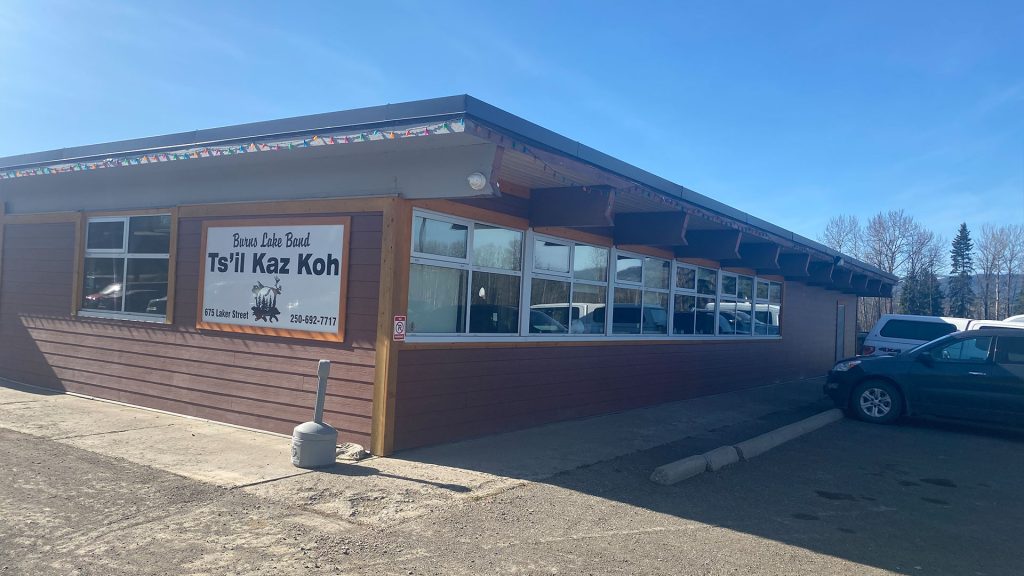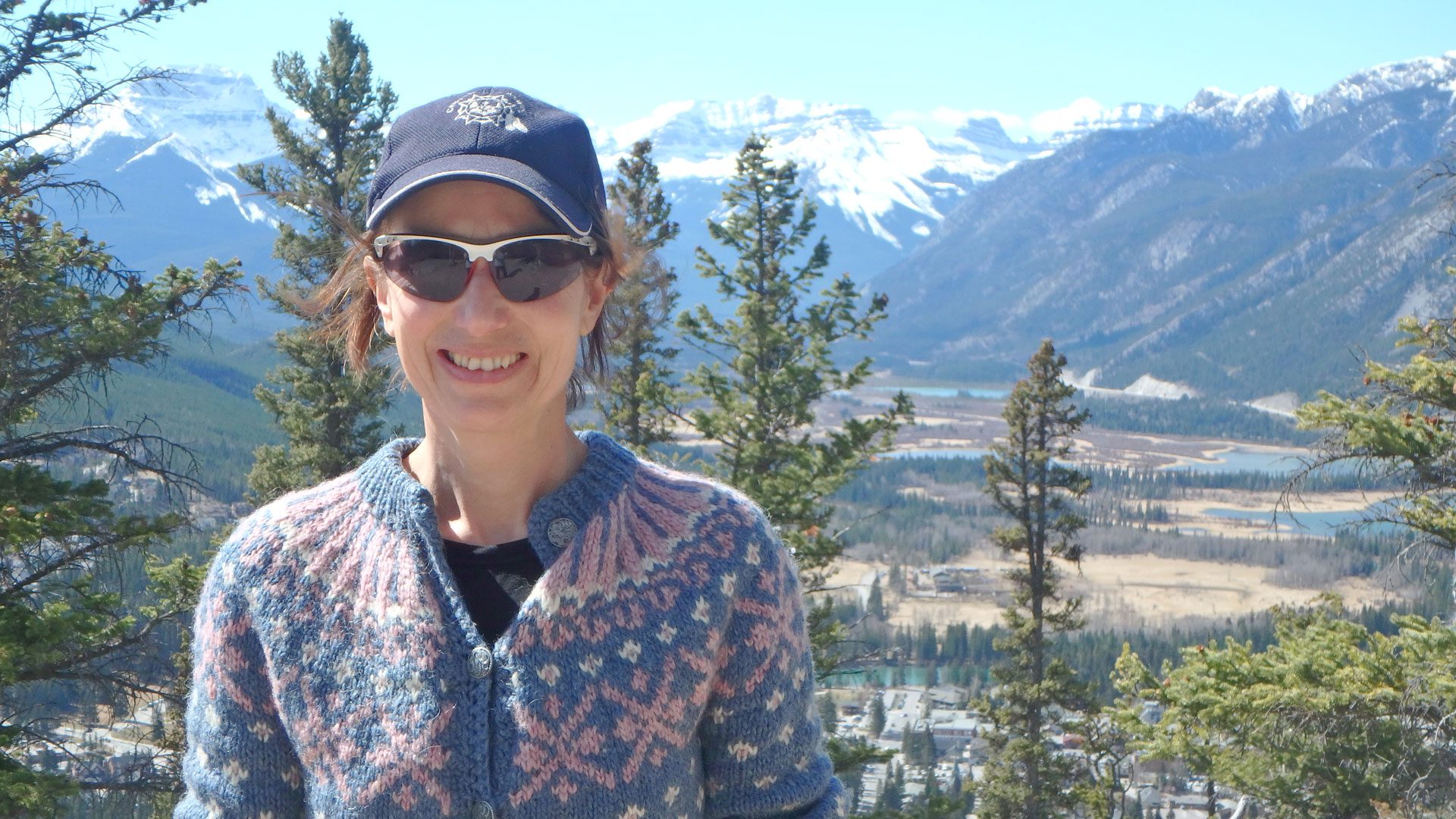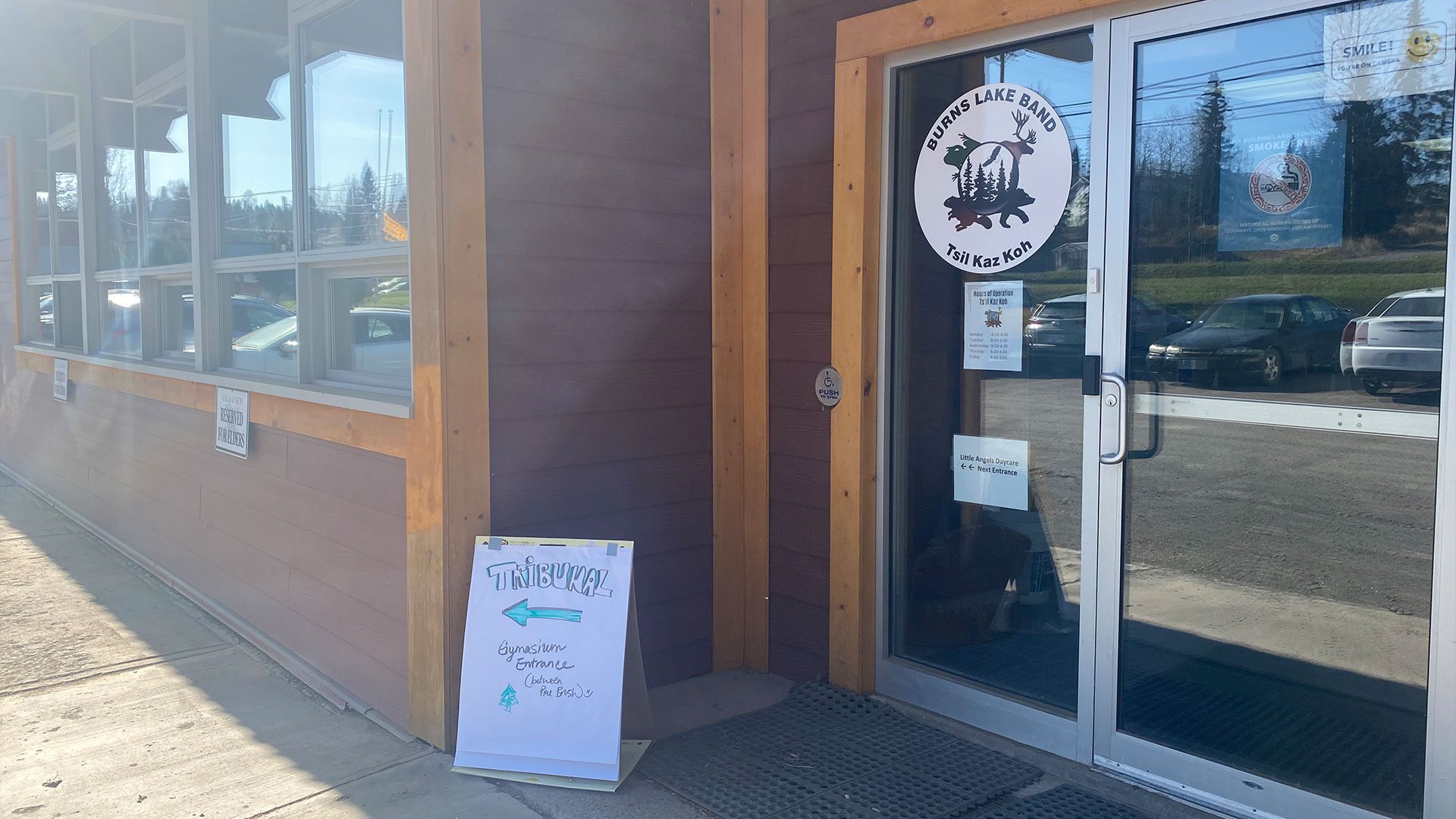
A Canadian Human Rights Tribunal is hearing evidence about day school abuse in Burns Lake, B.C. Photo: Kathleen Martens/APTN News
This story mentions experiences of day school abuse. First Nations, Inuit and Métis seeking immediate emotional support can contact the Hope for Wellness Help Line toll-free at 1-855-242-3310, or by online chat at hopeforwellness.ca.
When investigative journalist Laura Robinson first visited the Burns Lake band office in 2012, more than 30 people were waiting to meet her.
They wanted to talk about the verbal and physical abuse they experienced at Immaculata day school in the northern B.C. village during the late 1960s and early ‘70s.
“I took one person at a time into a room and they talked about horrendous abuse (allegedly inflicted) by nuns, priests and (a teacher),” Robinson told a Canadian Human Rights Tribunal hearing.
“These are very, very difficult stories to tell. People fell apart.”
As word spread about the “white lady news reporter” among the Carrier Sekani people of Burns Lake and Lake Babine First Nations, Robinson made repeated visits to northern British Columbia.
She received unsolicited emails, a note slipped under her hotel room door, and instructions to speak to specific individuals about accusations involving one individual – a teacher.
“Only because I attended counselling for several years can I talk about what happened without fear,” Robinson quoted day school survivor Emma Williams as saying in a signed statement she shared with the reporter.
Williams died in 2021 before she could testify at the tribunal probing whether RCMP in Prince George failed survivors while investigating their racial and physical abuse allegations against the teacher.
Under a publication ban in effect at the hearing, the teacher who worked at schools in northern B.C. in the 1960s and ‘70s, can only be referred to as A.B.
A group of six survivors, including Williams, alleged their 2013 criminal complaint to the RCMP about A.B. wasn’t taken seriously because they were Indigenous. The Canadian Human Rights Commission agreed and, in 2020, asked the tribunal to review the RCMP’s work.
Williams said going public with the abuse also affected their pro-Catholic communities.

“Others don’t want to be involved in what’s going on,” she wrote in the statement to Robinson. “They ask, ‘Are you after money? Do you want justice?’”
Still, Robinson was given more names. She travelled deeper into remote and neighboring communities to gather statements from people who either had no phones, computers or wifi, making numerous visits to northern B.C. from her home in Ontario.
She was also contacted by a justice worker for one of the bands who had statements from survivors to share. And representatives from the Indian Residential Schools Survivors’ Society with names of survivors to pass along.
Most had never shared their experiences before.
“They couldn’t give their whole statements without crying,” Robinson told tribunal Member Colleen Harrington on Day 3 of a two-week hearing in Burns Lake.
Robinson said A.B. was accused of hitting the students with rulers, pointers, a leather strap and sports balls.
She said she was told he yelled at students, used racial slurs and inflicted bruises through rough handling. One male student claimed A.B. dragged him along the floor by his hair after he refused to get a haircut, Robinson testified.
READ MORE: Human rights tribunal into complaint against RCMP underway in Burns Lake, B.C.
Another male student claimed he and the teacher got into a physical fight.
“He did a lot of damage to our people,” she quoted the angry survivor as saying, noting he was normally “a very gentle person.”
As the survivors trusted her more and more, Robinson said she felt a growing responsibility to tell their stories. She also noticed the impact of them reliving their trauma.
“This has taken 11 years and during that 11 years they’ve had a serious increase in mental health issues,” she told the survivors’ lawyer, Karen Bellehumeur.
“I’m a journalist, not a counsellor. I was afraid their emotional and psychological state was beyond my capabilities.”

On top of the cumulative effect of untreated abuse, Robinson said she saw the toll of defeat: how the “white system” failed to be accountable for what happened to the survivors as children.
“The psychological part is very difficult,” she added, noting “…of course, it takes its toll on you as a human being.”
Robinson denied she had “a personal vendetta” against A.B., as she said the RCMP officer investigating the survivors’ case in 2013 alleged.
“There has not been a vendetta,” she said.
The tribunal is scheduled to hear eight more weeks of virtual evidence once in-person testimony wraps up in Burns Lake on May 12.










